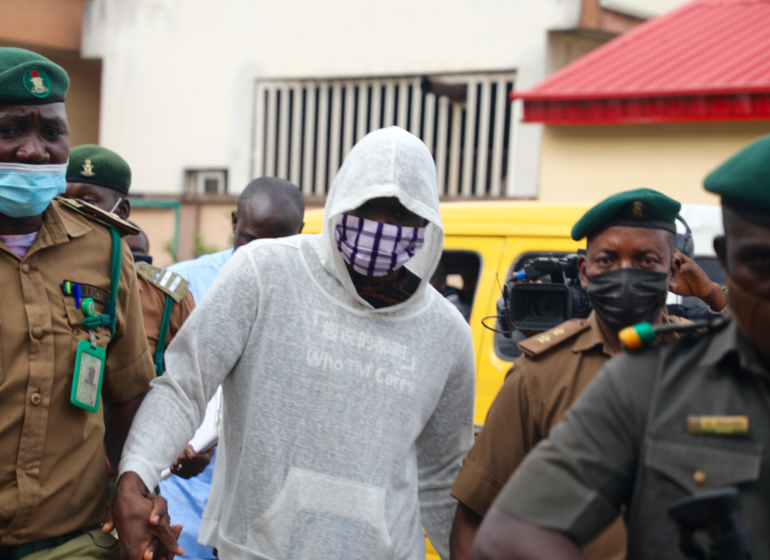The Ikeja special offences court has fixed December 15 to rule on the admissibility of the confessional statement by Baba Ijesha, the embattled actor, in the case of sexual assault against him.
According to NAN, Oluwatoyin Taiwo, the judge, announced the date on Thursday after the prosecution and defence teams adopted their written addresses on the trial-within-trial.
The movie star has been in a legal tussle since he was accused of assaulting a 14-year-old minor when she was 7.
He is facing a six-count charge bordering on the indecent treatment of a child, sexual assault, attempted sexual assault by penetration, and sexual assault by penetration.
The actor had earlier confessed to the allegations against him in his confessional statement to the police.
But when he appeared in court on November 19, the film star had claimed that he was forced to sign the confessional statement at the police station.
Babatunde Ogala and Dada Awosika, lawyers to the actor, had argued that the statement cannot be admitted as evidence by the court since their client did not give it willingly.
At the time, the judge had approved the lawyers’ request for a trial-within-trial to determine the voluntariness of the statement.
After the trial-within-trial, Taiwo had adjourned the trial for adoption of written addresses.
When the trial resumed on Thursday, Awosika told the court that the defence had filed a response to that of the prosecution while adopting his written address.
He objected to the submission of the prosecution that the defendant was not tortured.
Citing Section 35(1) of the evidence act, Awosika argued that in criminal matters, there are two burdens of proof, noting that “one can change and the other doesn’t change.”
He said the defendant had put forward facts before the court which substantiate the use of oppression.
“It is for the court to look at evidence by the defendant that he was handcuffed, beaten and forced to sit on ground. Does that not qualify as evidence of oppression?” he asked.
Awosika further cited section 29(5) of the evidence act to buttress his point.
“Even from the prosecution’s evidence, the defendant was sitting on the ground and shaking; one cannot make statement under that condition,” he added.
He urged the court to discountenance the submission of the prosecution.
But Yusuf Sule, the lead prosecutor, contended that there was no evidence before the court that the defendant was oppressed while making his confessional statement.
Sule said that the defendant told the court that he was beaten before he was brought to the police station.
This, he said, “means it was a mob attack from which he was rescued.”
He noted that the defendant was trying to mislead the court.
Sule urged the court to uphold that the confessional statement of Baba Ijesha was voluntarily made.
Following the adoption of the written addresses, Taiwo ordered a witness summon to be issued for Brown Asuquo, a prosecution witness, mandating him to appear in court at the next adjourned date.
Copyright 2024 TheCable. All rights reserved. This material, and other digital content on this website, may not be reproduced, published, broadcast, rewritten or redistributed in whole or in part without prior express written permission from TheCable.
Follow us on twitter @Thecablestyle

